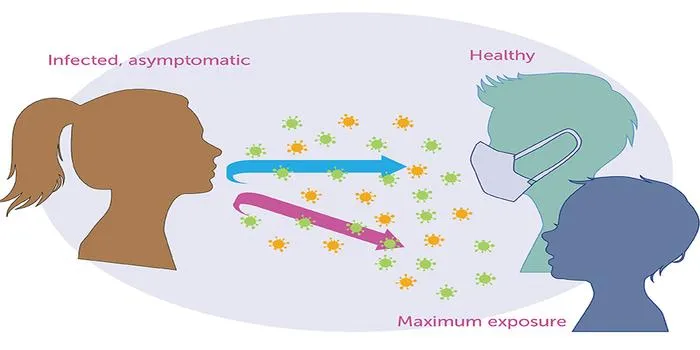- Home >
- Science
- > Exploration
In fish, parents' stressful experiences influence offspring behavior via epigenetic changes
In fish, research has shown that the stressful experiences encountered by parents can significantly affect the behavior of their offspring through epigenetic changes. These changes do not alter the genetic code itself but modify gene expression, thereby influencing how certain traits are developed and expressed in the next generation. Stress-induced epigenetic modifications can lead to variations in offspring behavior, potentially impacting their survival, adaptability, and reproductive success in various environmental conditions.

Understanding the intricate relationship between parental experiences and the behavior of offspring is a growing field of interest in the study of fish. Recent research has revealed that stressful experiences faced by parent fish can lead to epigenetic changes, which subsequently influence the behavior of their young. This article delves into the mechanisms behind this phenomenon, highlighting the implications for fish behavior and showcasing the significance of epigenetics in aquatic environments.
The Role of Epigenetics in Fish Behavior
Epigenetics refers to the study of heritable changes in gene expression that do not involve alterations to the underlying DNA sequence. In fish, epigenetic modifications can occur due to various environmental factors, including stress. These modifications can affect how genes are expressed, leading to changes in behavior that may be passed on to offspring.
For example, when parent fish experience high levels of stress, such as from overcrowding or predation threats, their bodies may undergo epigenetic changes that alter the expression of genes related to stress response and behavior. This can result in offspring that are more or less reactive to stressors in their environment, fundamentally altering their survival strategies.
Mechanisms of Stress-Induced Epigenetic Changes
Stressful experiences can lead to various epigenetic modifications, including DNA methylation, histone modification, and non-coding RNA expression. These mechanisms can significantly influence gene expression and, consequently, behavior:
| Epigenetic Mechanism | Description | Impact on Behavior |
|---|---|---|
| DNA Methylation | Addition of methyl groups to DNA, often silencing gene expression. | Can lead to reduced stress responsiveness in offspring. |
| Histone Modification | Changes to the proteins around which DNA is wrapped, affecting gene accessibility. | Influences behaviors such as aggression and risk-taking. |
| Non-Coding RNA Expression | Regulatory RNA molecules that can modulate gene expression. | May affect social behaviors and adaptability to environments. |
Implications for Survival and Adaptation
The epigenetic changes that occur in parent fish due to stress can have profound implications for their offspring's survival and adaptation. For instance, young fish that inherit epigenetic modifications associated with heightened stress responses may develop behaviors that enhance their ability to cope with environmental challenges. Conversely, offspring from less stressed parents might exhibit more exploratory and risk-taking behaviors, which could be advantageous in resource-rich environments.
Understanding these dynamics can help researchers and conservationists in managing fish populations, particularly in changing environments where stressors such as pollution and habitat destruction are prevalent. By recognizing the importance of parental experiences, strategies can be developed to ensure the resilience of fish populations in the face of ecological challenges.
Research Findings and Case Studies
Multiple studies have provided evidence of the link between parental stress and offspring behavior in fish. For instance, a study involving zebrafish demonstrated that when parent fish were subjected to stress, their offspring displayed altered fear responses and social behaviors. These findings underscore the significance of epigenetic changes as a mechanism for transmitting behavioral traits across generations.
Another case study focused on the common guppy, where researchers found that stressed parents produced offspring that were more cautious and less exploratory. This behavior likely evolved as a survival tactic, equipping the young fish to navigate environments with higher predation risks.
Future Research Directions
While current findings highlight the influence of parental stress on offspring behavior, further research is needed to fully elucidate the complexities of these epigenetic mechanisms. Future studies could explore:
- The long-term effects of various types of stress on gene expression and behavior.
- Interactions between genetic and epigenetic factors in shaping behavior.
- The role of environmental conditions in modulating epigenetic changes.
By expanding our understanding of how stress influences fish behavior through epigenetic changes, we can better appreciate the evolutionary implications of these adaptations and develop more effective conservation strategies.
Conclusion
The interplay between parental stress and the behavior of offspring in fish provides essential insights into the role of epigenetics in aquatic life. As research continues to unveil the mechanisms behind these changes, it becomes increasingly clear that understanding these relationships is crucial for the conservation and management of fish populations. With the ongoing challenges posed by environmental change, recognizing the significance of ''epigenetic influences'' will be vital for ensuring the resilience and sustainability of fish species in our oceans and rivers.












